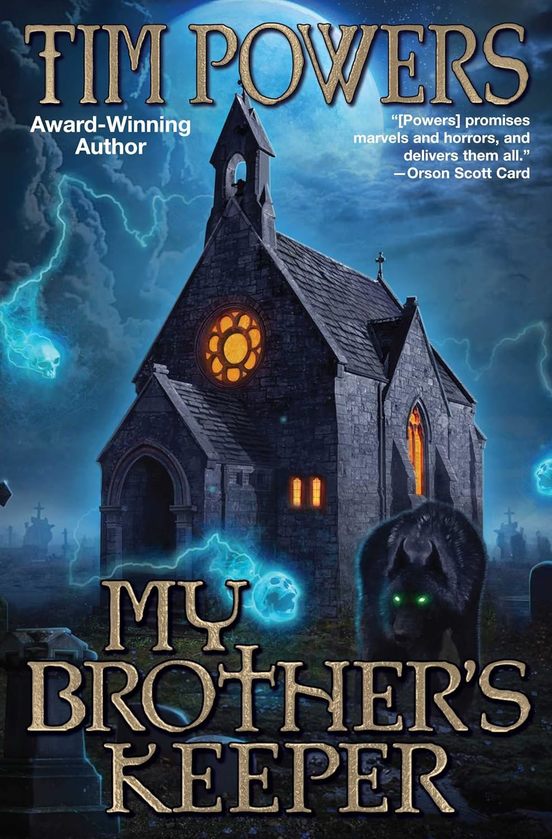When most people think of the big names in fantasy and horror (and by most, I mean people who are only aware of the genres and not avid readers), they might mention Diana Gabaldon and Stephen King. Meanwhile, readers more interested in those types of stories can probably tell you about Jim Butcher, Brandon Sanderson, and Joe Hill. But I’m surprised how few people are familiar with Tim Powers.
I try to pay attention to everything and didn’t know his name until almost two years ago.
Powers has been publishing award winning novels my entire life, with 19 so far and numerous short stories. The book that got my attention was Declare, because I’ve always wanted a good Noah’s Ark novel with espionage and djinn. I read it, but I confess I couldn’t really understand or appreciate it fully. The book requires greater familiarity with WWII history than I possess.
But I could see what he was doing.
And I liked it.
There’s two things one should know going into a Tim Powers novel: one, he’s a devout Catholic and his magic is counterbalanced by his faith. And two, he slavishly adheres to historical accuracy. How does that work with fantasy? He carefully studies the lives of real-life people and the events surrounding their lives. Any gaps are fair game for filling with the fantastic. These are secret histories, with as much fact as fiction.
Sometimes things work out so well, though, he scares himself.
Powers’ latest book is My Brother’s Keeper, which tells the story of the Brontë family. It’s documented fact that Emily and her lesser-known brother Branwell were both bitten as children by supposedly rabid dogs. What if those dogs were actually one dog, and what if that dog was a werewolf? We also know that their father, Patrick, outlived all of his children, Maria, Elizabeth, Charlotte, Branwell, Emily, and Anne, who died of consumption. What if that was a family curse?
Well, now we have the start of a very interesting story.
When Emily and her bullmastiff Kepper find an injured man, the Byronic Alcuin Curzon, out on the moors in 1845 she stumbles into an ancient battle between Christians, werewolves, and the pagan gods that haunt the countryside. Unbeknownst to her, Patrick brought an evil spirit with him from Ireland, and while in London her wastrel brother made a pact with demonic cult. Curzon represents a group of Catholic hunters determined to stop the cult, but it’s feared he may have to kill Branwell to do so.
Emily doesn’t just have to save the world from a werewolf plague, but also the very souls of her family.
While there are bits of humor sprinkled throughout, this is not Wuthering Heights and Werewolves. The approach Powers takes is deadly serious, and while inherently religious, he doesn’t deny the presence of the small G gods that dwell in England and the ghosts that haunt the churchyard. Without being explicit about things, Powers conveys the sense that he’s done his research into folklore and the occult, giving this story heft.
This is no ironic pastiche.
If you’re looking for something thoughtful to read during spooky season, even if you’re a failed English major like me (I never finished Wuthering Heights), I doubt you can do much better than My Brother’s Keeper for thrills and chills. There’s nothing preachy about it, so Catholics, Anglicans, and non-religious werewolf aficionados alike can enjoy the story free of headaches.
But the next time you find yourself out on some misty night, you may find yourself looking over your shoulder.

























